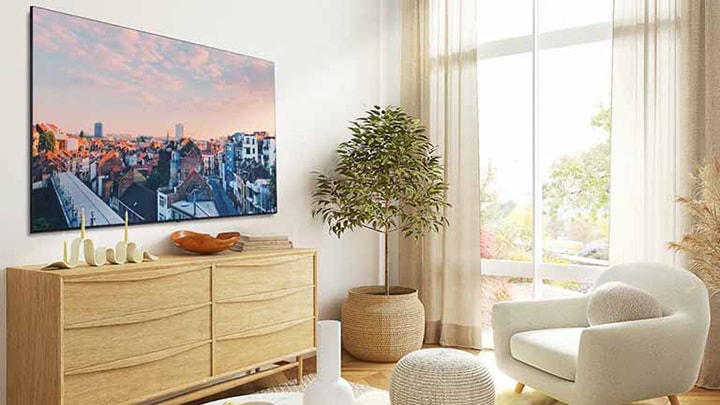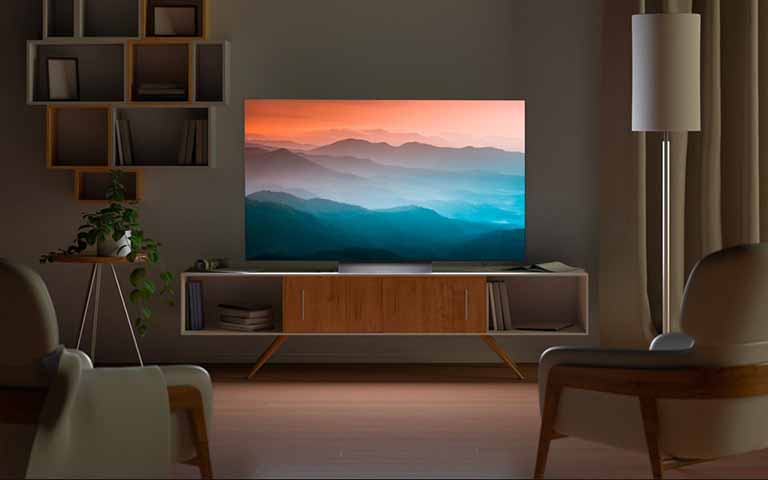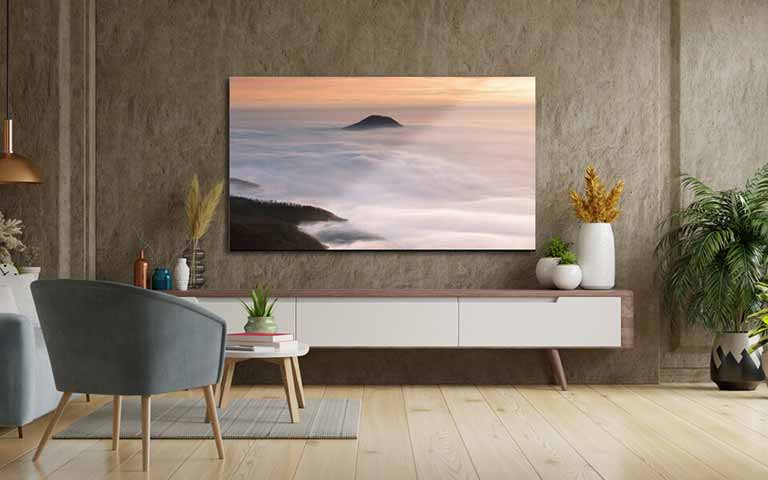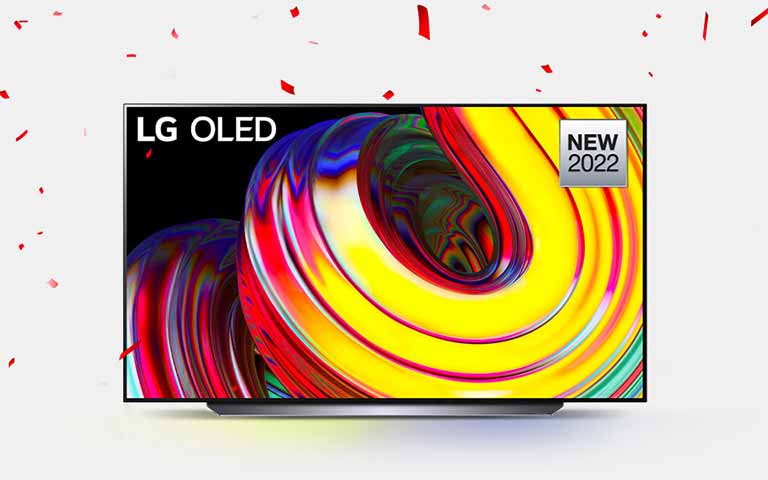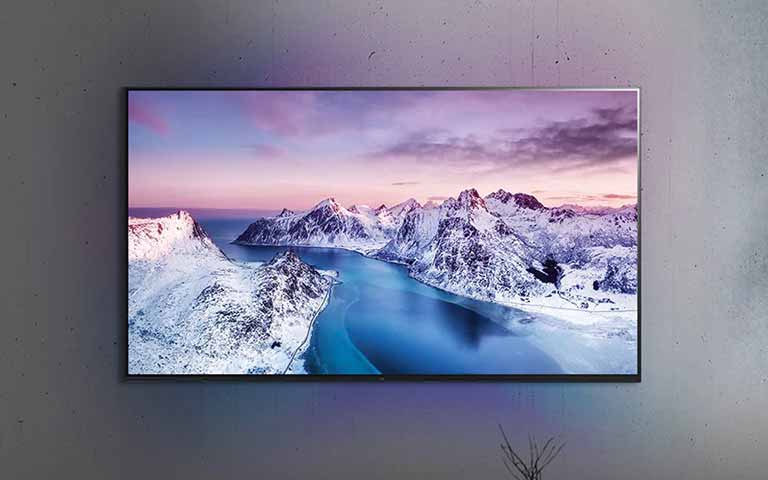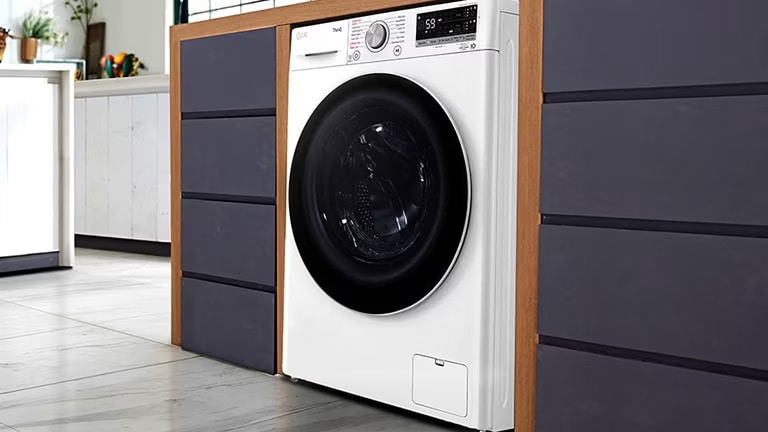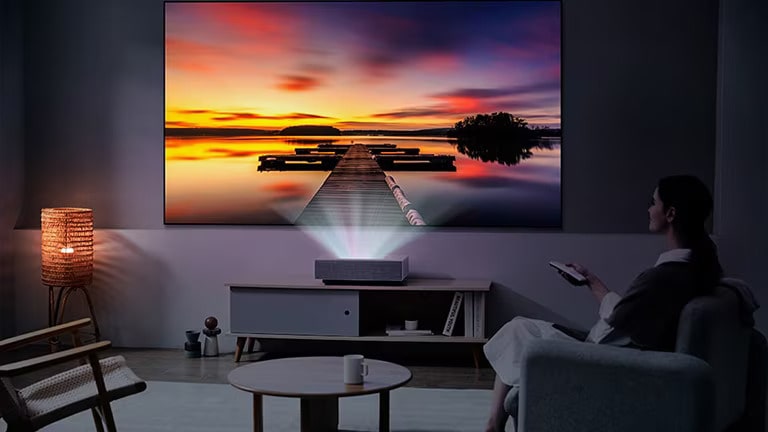We use cookies, including cookies from third parties, to enhance your user experience and the effectiveness of our marketing activities. These cookies are performance, analytics and advertising cookies, please see our Privacy and Cookie policy for further information. If you agree to all of our cookies select “Accept all” or select “Cookie Settings” to see which cookies we use and choose which ones you would like to accept.
Buying Guides
TV Buying Guide
TV Buying Guide
TV Buying Guide
Whether you’re looking for a replacement TV or a second – or even a third or fourth – TV for your home, there are plenty of options out there today. From resolution and special features to sizing and budget, there’s a lot to think about when you’re in the market for a new TV, and it can be tricky to know where to begin. We’ve put together a handy buying guide to help you choose a model that’ll meet your needs.
Different Types of TVs
At LG, we have a range of different TVs available; here’s a little breakdown of what makes each type special.
What is OLED?
OLED TVs use organic light-emitting diodes instead of LED lights; when an electric current is passed through them, they light up to produce pictures on the screen. OLED TVs have a brilliant picture quality, with vibrant colours and sharp contrasts. You’ll also find that these TVs can display black tones really well, because OLED pixels are able to turn themselves on and off independently. This means that you’ll be able to watch films and play games in darker rooms, without it affecting the display.
You can also watch OLED TVs from wide angles without impacting the image quality. This makes them ideal for shared viewing, whether you’re watching sports with your friends or the latest blockbuster with your family.
What is OLED evo?
What is OLED evo?
Introducing the LG OLED evo range which marks a new generation in OLED technology. These TVs come with a Brightness Booster feature, meaning they’re able to produce more vivid colours with extreme clarity. Available in a range of sizes, from 42” up to 83”, these TVs offer a truly immersive viewing experience.
What is QNED?
What is QNED?
Our QNED TVs feature approximately up to 2400 dimming zones*, using smaller backlight technology that’s 1/40 of the size of a conventional LED – thereby allowing more lights to fit into the screen to control brightness in a more precise way. It means that our QNED models have an increased peak brightness level, and can display sharper contrasts and more detail than an average LED/LCD TV**.
*Number of dimming zones varies depending on screen size.
**Image quality dependent on source material.
You’ll also find QNED models with Quantum Dot and NanoCell technology, which produce rich and accurate colour display. These technologies use tiny particles (that are fitted in the panel itself) to filter out impurities and unnecessary light particles, so the colours that you see on screen are more pure and vibrant.
OLED vs. QNED TVs
OLED vs. QNED TVs
The key difference between LG OLED and QNED TVs is in the technologies they use, as we touched on above. OLED TVs emit their own light; they don’t use LEDs or other forms of backlighting to produce images, while QNED TVs do use LED backlights to transmit an image.
Sometimes, this can affect sizing: our OLED TVs are usually slimmer than QNED TVs, simply because they don’t have this backlighting or the transistor/stabilisation layers that are required for it.
What is NanoCell?
What is NanoCell?
Our NanoCell TVs use the same technology that you’ll find in selected QNED models; nanoparticles filter out impurities in light wavelengths to display brighter images with more depth. These TVs also use IPS panels, so you can enjoy great colour performance at wide angles.
What is UHD?
Our Ultra High Definition – or UHD – TVs provide a sharp 4K picture display. These TVs have a screen resolution that’s four times that of a Full HD (1080p) TV. This means that each pixel is four times smaller than those found in a standard HD TV – and this is why the picture quality is better on a UHD set.
Ultra Large TV
Ultra Large TV
You’ll find 75”, 77”, 83”, 86” and 88” size TVs in our online store, and these larger sets are brilliant for creating a real entertainment hub in the home. With ultra-large screen TVs available, our bigger sets use many of the same technologies to ensure the display remains crisp, clear and vibrant.
Understanding TV Screen Resolution
You’ll no doubt have heard of screen resolution before and, when shopping for a new TV, it’s probably one of your primary concerns.
What is screen resolution? Resolution simply refers to the number of horizontal and vertical pixels that make up a display. The more pixels a unit has, the sharper and more detailed the picture will be. This is why TVs with a higher resolution usually deliver premium displays.
What is 1080p resolution? For many years, the standard resolution for most TVs – what we call full HD – was 1920 x 1080 (or 1080p). In other words, these TVs have 1920 horizontal pixels and 1080 vertical ones.
What is 4K screen resolution? By comparison, 4K UHD TVs have a screen resolution of 3840 x 2160, or 2160p.
What is 8K screen resolution? Today, you’ll find 8K TVs that have an even higher screen resolution, at 7680 x 4320 pixels (4320p). These models – like the LG SIGNATURE OLED evo Z3 8K Smart TV – produce unbelievably detailed images that are truly impressive to see.
To discover more about screen resolution, take a look at our in-depth guide.
4K vs. 8K TVs
As we mentioned, the key difference between a 4K and an 8K TV is the resolution, or the number of pixels. 8K TVs have four times the number of pixels than 4K TVs, so they do provide a sharper image.
However, 4K TVs still deliver a premium picture quality, and you’ll find that you have many more options out there. Additionally, the majority of content is still made with a 4K display in mind, so you may not always get the full impact of an 8K display.
But while there are currently fewer 8K TVs on the market, this technology is destined to grow; in fact, it’s likely to be the next big thing in consumer TVs. And if picture quality is your number one priority, you can’t really beat an 8K display.
Screen Size
Size should be one of the main considerations you’ll have when shopping for a new TV. If you choose something that’s too small for a room, you’ll struggle to really enjoy what you’re watching; if it’s too big for the space, you’ll find that the viewing distance is too short, and you won’t be able to take it in.
To ensure an optimal viewing experience, the screen should fill 30° of your field of vision, which means that the viewing distance – or how far you sit from the TV – is 1.2 to 1.6 times the screen size.
To find out more about this, and to work out which size will work best in your home, take a look at our TV size guide.
Features to Look Out For on LG TVs
You’ll notice that our TVs come with a whole host of features designed to create a truly immersive viewing experience, whatever you’re watching. Here are some of the innovative features you’ll find on selected LG models.
Smart TV Features
TVs that have integrated web connectivity, or Smart TVs, are fairly common today. Offering direct access to streaming services like Netflix, Disney+ and Amazon Prime, Smart TVs allow you to enjoy the latest entertainment from the comfort of your own home.
You’ll notice that selected LG models come with AI-powered technology to enhance these existing smart features – and offer some new ones too.
● ThinQ AI & WebOS: ThinQ AI allows you to command and control your TV using your voice – so you’ll never need to worry about losing the remote again! ThinQ also uses AI technology to create personalised entertainment recommendations based on your viewing habits.
● AI Processing: Selected LG TVs, like the LG QNED80 4K Smart TV, are powered by an AI Processor. Supporting features including AI Picture Pro enhance the contrast and resolution of images, providing crisper visuals. Other TVs come with a scene analysis feature, which recognises the content on-screen and splits this into one of four scene types (scenery, night, city and other), before processing the image to improve its quality. If an image is categorised as ‘scenery,’ for example, this feature will enhance edges and texture, whilst the ‘city’ setting will sharpen any footage of buildings; if the category is ‘night,’ differences in shade will become more visible.
FILMMAKER MODE™
Although you may find things like motion smoothing and image sharpening suitable – if not preferable – for some entertainment, like sports and TV, it doesn’t always work so well for feature films. FILMMAKER MODE™ automatically turns off picture processing settings in movies, so that they can be enjoyed at home as the director intended.
Dolby Vision™ & Dolby Atmos®
Dolby Vision™ & Dolby Atmos®, the renowned HDR and sound solution, enhances the sound and picture quality of movies and games. This feature enables you to create a truly immersive cinematic experience at home, with professionally mastered vision and sound.
TruMotion
TruMotion uses motion smoothing technology to improve the quality of fast-paced content like sports.
Gaming Features
You’ll notice that some of our TVs come with features specifically designed to enhance or support gameplay.
● AMD FreeSync™: This reduces tearing, stuttering and input lag, for a seamless experience, even when you’re playing fast-paced games. You’ll find this feature on selected LG monitors, too.
● Game Optimizer: Enjoy optimal settings for various game genres, including first-person shooter games (FPS), role-playing games (RPG) and real-time strategy games (RTS). You can also toggle refresh rates and AMD FreeSync™ technologies for smoother gameplay.
● Game Dashboard: You can access and adjust some settings during gameplay using the dashboard feature.
● Cloud Gaming: Other TVs in our range support NVIDIA’s GeForce NOW app, which lets you to instantly play the most popular PC games, as well as a number of free games.
● HDMI 2.1: HDMI 2.1 provides next-gen connectivity for consoles. With features like HFR (High Frame Rate) and eARC (Enhanced Audio Return Channel), you’ll get to enjoy fast-moving content at high resolutions, with smoother audio and graphics. Selected models also come with ALLM (Auto Low Latency Mode), which automatically switches to game mode when the console is turned on, giving you a smoother, lag-free experience.
Additional TV Buying Considerations
There are a few final things you should think about when purchasing a new TV, to ensure you get the best viewing and entertainment experience possible.
Sound
Audio is an important aspect of any good entertainment setup, so it’s worth familiarizing yourself with some of the specific sound features designed to amplify your TV’s audio.
Some of our TVs come with the AI Sound Pro feature, which identifies and optimizes audio based on the genre of the content you’re watching. Selected TVs also come with an audio volume levelling feature, making voice levels consistent across different types of content.
You may want to buy a sound bar to further enhance your audio setup. Our sound bars provide rich sound and can connect wirelessly to our TVs, to give you an immersive experience that puts you at the centre of the action.
Ports
It’s always a good idea to have a few HDMI inputs available on your TV, so that you have the flexibility to connect a range of devices; you may want to connect a DVD or Blu-ray player, a console and a Chromecast, for example. It’s easy to forget how quickly these ports can be used up, so think about how you’ll use your TV on a daily basis, and take note of how many HDMI ports are listed in the specifications when shopping around.
Ready to buy your next TV?
TVs are a must for any modern home, whether you love to binge watch the latest box sets, stream your favourite films or kick back to watch the game – and maybe play a few games too! Browse our full range of TVs online to discover next-level displays, out of this world audio and fantastic features.
